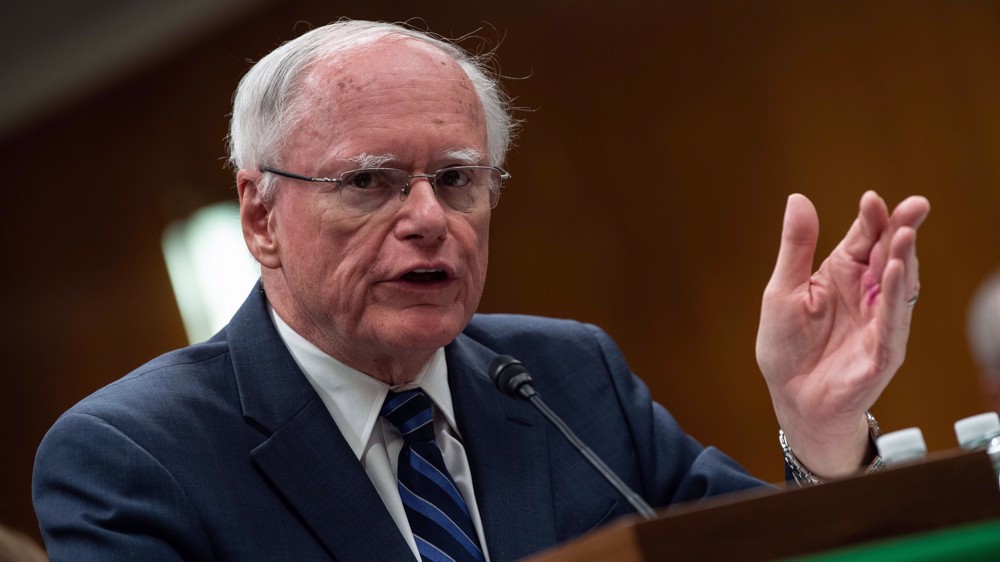US threatens UAE with sanctions over Syria rapprochement
The US has threatened to slap sanctions on the United Arab Emirate as Abu Dhabi presses ahead with efforts to normalize ties with the Syrian government.
US Special Representative for Syria Engagement James Jeffrey issued the warning during a press conference on Washington’s recently enacted anti-Syria economic measures, known as the Caesar Syria Civilian Protection Act, which blacklists 39 entities and individuals, including Syrian President Bashar al-Assad and his wife Asma.
Jeffrey said the US would not exclude the UAE from its coercive measures if it violates the Caesar Act.
“Anyone who engages in economic activities, whether in the UAE or in other countries...may be targeted by these sanctions,” Jeffrey said.
The US envoy also rebuked Abu Dhabi for its policy of rapprochement with the government of Syrian President Bashar al-Assad, calling the reopening of the UAE embassy in Damascus a “bad idea."
“The UAE knows that we absolutely refuse that countries take such steps,” he added.
The Caesar Act came into effect on Wednesday, six months after it was signed into law by US President Donald Trump, targeting individuals and businesses anywhere in the world that operate either directly or indirectly in Syria's economy.
The Syrian Foreign Ministry condemned the American sanctions as “a crime against humanity and a flagrant violation of the international law that targets the livelihood of the Syrians."
US Secretary of State Mike Pompeo called the bans “the beginning of what will be a sustained campaign of economic and political pressure to deny the Assad regime revenue.”
The measures are meant to “prevent the Assad regime from securing a military victory” in the fight against foreign-backed terrorists, according to US Ambassador to the UN Kelly Craft.
The UAE has long been a supporter of anti-Damascus terrorists, but in recent years it has tried to made overtures to Syria as the national army inches closer to win the counter-terrorism battle.
In late 2018, Abu Dhabi reopened its embassy in Damascus for the first time since an Arab diplomatic boycott of Syria.
In December 2019, Emirati charge d'affaires Abdul-Hakim Naimi praised Assad for his “wise leadership," describing relations between the two Arab countries as "solid and special".
In March 2020, Abu Dhabi's Crown Prince Mohammed bin Zayed Al Nahyan held a phone conversation with Assad and vowed to support the war-torn Arab country during the novel coronavirus (COVID-19) pandemic.
US vetoing of Gaza ceasefire resolution ‘disgraceful’: Iran’s UN envoy
VIDEO | IAEA adopts anti-Iran resolution tabled by E3
VIDEO | Iran's president urges Pope to help end Israel's onslaught in Gaza
Iran's senior legal official: ICC arrest warrant for Netanyahu ‘great victory'
Nov. 21: ‘Axis of Resistance’ operations against Israeli occupation
VIDEO | Israeli forces storm West Bank’s Jenin again, target civilians
Iran activates advanced centrifuges after IAEA's 'unjust' resolution
VIDEO | Press TV's news headlines
















 This makes it easy to access the Press TV website
This makes it easy to access the Press TV website